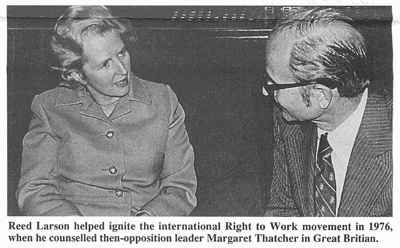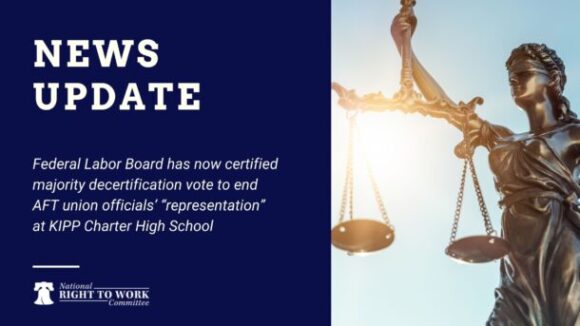Will Team Biden Weaponize Workers’ Pensions?
Big Labor abuse of worker pension and benefit funds as a means of advancing union bosses’ self-aggrandizing policy objectives is a familiar phenomenon.
 Margaret Thatcher passed away early today. It’s been nearly a quarter-century since the “Iron Lady” stepped down as Great Britain’s prime minister, but, as Reason Magazine contributor Ira Stoll observes in the commentary linked below, she remains highly relevant today largely thanks to the way “she transformed Britain’s domestic policy and economy.” During Thatcher’s 1979-1990 tenure as prime minister, government spending as a share of GDP fell from 47% to 39%, Stoll notes. Thatcher successfully privatized government-owned gas, electric, coal, telephone, and airline companies, and sold government-owned housing projects to the tenants who lived in them.
Margaret Thatcher passed away early today. It’s been nearly a quarter-century since the “Iron Lady” stepped down as Great Britain’s prime minister, but, as Reason Magazine contributor Ira Stoll observes in the commentary linked below, she remains highly relevant today largely thanks to the way “she transformed Britain’s domestic policy and economy.” During Thatcher’s 1979-1990 tenure as prime minister, government spending as a share of GDP fell from 47% to 39%, Stoll notes. Thatcher successfully privatized government-owned gas, electric, coal, telephone, and airline companies, and sold government-owned housing projects to the tenants who lived in them.
Thatcher’s privatizations and income tax-rate cuts helped transform an economy that had lagged behind those of other major industrial countries for many years into the envy of continental Europe and much of the rest of the world.
Stoll’s brief tribute is a worthy effort, but it shortchanges what Fortune magazine correctly labeled back in May 1988 as the “foremost” among the “large structural improvements gradually put in place by Thatcher’s government,” namely “changes in labor policies.”
As the National Right to Work Newsletter recalled in a July 1988 profile of Britain under Thatcher, early during the year her government first took power “strikes and union slowdowns in vital public services had paralyzed the country. Striking grave diggers refused to bury the dead. Only emergency treatment was permitted in strike-bound hospitals and, in many areas of London, garbage piled up to the second stories of buildings.”
The Thatcher government quickly turned the country in a new direction, but its progress in curbing the coercive power of militant union bosses was slow and gradual. Big Labor-intimidated “wets” within her own Conservative Party as well as forced union dues-financed Labor Party politicians opposed significant labor-policy changes. Incremental reforms were nevertheless made throughout the 1980’s, but forced union membership itself was not abolished until 1990.
In a 1991 monograph on the Thatcher government’s employment reforms, economist Charles Hanson explained how Margaret Thatcher’s trench warfare against compulsory unionism had had a “doubly beneficial effect”:
First, it has given several million actual or would-be employees the right to make a free choice about union membership. Second, and almost as important, it has forced employers to think about employees as individuals rather than trade union members bound by rules and restrictions over which they have no control. There are already signs that this different approach by management can produce a large increase in quality and productivity and, as the message that the closed shop is unacceptable is more widely received and understood, this favorable trend should develop further.
How Margaret Thatcher Brought Economic Freedom to Britain

Big Labor abuse of worker pension and benefit funds as a means of advancing union bosses’ self-aggrandizing policy objectives is a familiar phenomenon.

What impact does handing a union monopoly power to deal with your employer on matters concerning your pay, benefits, and work rules have on your pay?

Federal Labor Board has now certified majority decertification vote to end AFT union officials’ “representation” at KIPP Charter High School